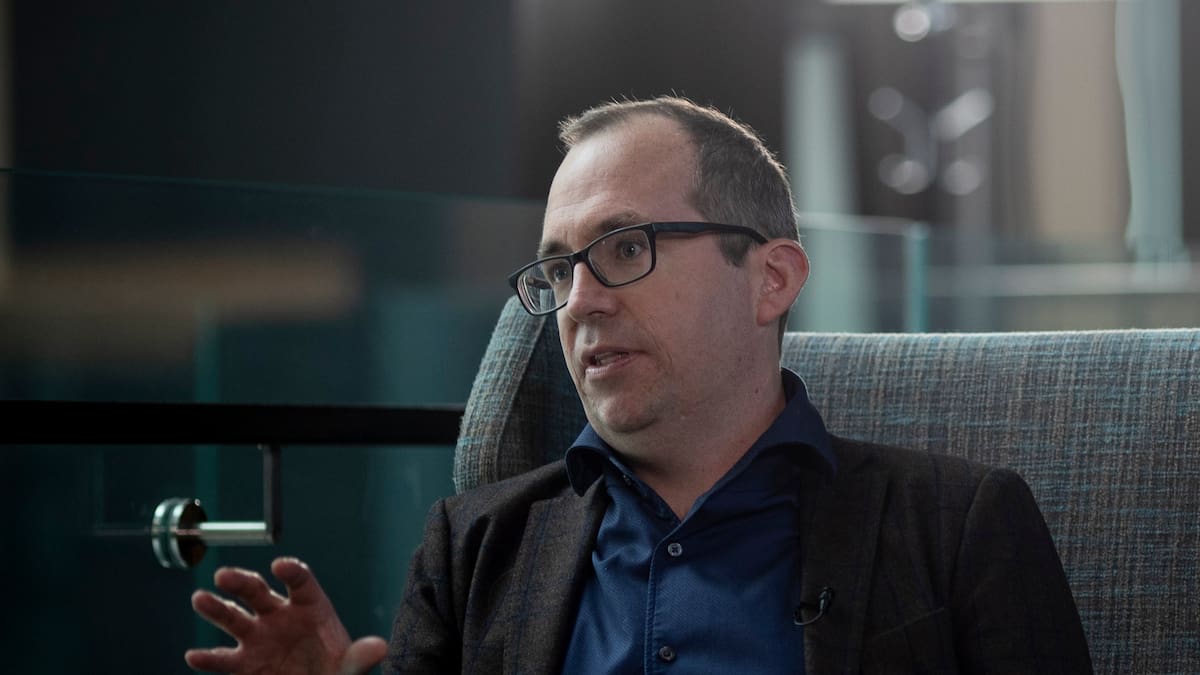In mid-October, Eroad announced a “pivot” to focus on Australia and New Zealand and the resignation of its US-based co-CEO David Kenneson.
Heine said the new strategy was already paying off with a new contract with Cleanaway Waste Management in Australia covering more than 3000 heavy vehicles. He said the deal – announced to the NZX earlier this week without a figure attached – would be worth around $5m per year.
CEO highlights underlying growth
“We’re really happy with the free cash and ARR [annualised recurring revenue growth] in a challenging market,” Heine said.
ARR increased from the year-ago $89m to $93.2m. Total first-half revenue was up 3% to $99.1m.
Revenue
Free cash flow was reported at $6.2m for the first half (versus $0.1m for year-ago period). An investor presentation said without 4G upgrade costs, it would have been $16.7m.
First-half ebitda, at $28.7m, was slightly down on the year ago $29.2m.
Impact of 3G shutdown
With its half-year update today, Eroad maintained the full-year guidance given in October. That included the cost of upgrading customers to 4G as local communications partner shut down its 3G network on December 31 (2degrees is shuttering its 3G mobile network at the same time, while Spark will pull the plug in March.)
90% of local Eroad customers were now on 4G, Heine said. Most were smaller customers. Eroad was on target to upgrade the remainder over December and January. Inertia was the main issue.
The cost of the 3G shutdown could be accommodated from free cash flow, and was in line with first-half and full-year, Heine said.
RUC potential
Earlier this year, Transport Minister Simeon Brown said road user charges for passenger vehicles – currently restricted to diesel and electric cars – would be expanded to apply to all light vehicles via an electronic-based solution.
Heine earlier told the Herald that Eroad – which already collects some $946m in RUCs for the Government via its hardware for trucks – could produce a $40 RFID and GPS tag for collecting RUCs (and potential congestion charges and tolls) from everyday cars, with a companion smartphone app used for recurring billing.
An investor presentation today talked up this opportunity.
It won’t be until mid-2026 when the specifications are finalised, however, and Eroad and its rivals can formally submit proposals. Brown has said he wants a solution settled on by 2027, but has not yet committed to a go-live date.
Debates lie ahead, including whether drivers pay for a tracking device, and what privacy safeguards will be in place, given the hardware to collect RUCs and congestion charges will have to track a private vehicle’s every move. (Heine says his firm could put anonymity protections in place.)
Narrower US strategy
Heine – now sole CEO of the Auckland-based, NZX-listed truck-tracking technology firm – reiterated that Eroad’s focus in North America was now on retaining existing customers and upselling them to new technology such as its in-cab Clarity Edge Dashcam, which uses AI for features including monitoring a driver for fatigue.
Eroad would still seek new customers in the US, but only in the refrigerated trucking niche or “cold chain”.
Shares were flat in early trading.
Chris Keall is an Auckland-based member of the Herald’s business team. He joined the Herald in 2018 and is the technology editor and a senior business writer.

